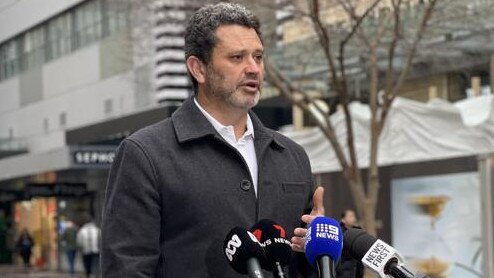New laws set to ban gay conversion therapy in South Australia
South Australia will join Queensland, Victoria, the ACT and NSW in banning ‘gay conversion therapy’ if the laws pass.
SA News
Don't miss out on the headlines from SA News. Followed categories will be added to My News.
Conversion practices aiming to change or suppress a person’s sexual orientation or gender identity are set to be banned in SA.
The South Australian government will move to outlaw conversion practices which primarily target the LGBTIQ community.
Under proposed laws set to be introduced to the state parliament this week, perpetrators who cause serious harm to their victim face up to five years in jail.

The proposed laws would also allow victims of conversion practices to bring a complaint to the Equal Opportunity Commissioner, with enforceable remedies ultimately available through the South Australian Civil and Administrative Tribunal.
Individuals who either try to take – or arrange to have someone taken – from the state for this purpose would face up to three years in jail, a fine of up to $15,000, or both.
Bans are already in place in Queensland, Victoria, the ACT and NSW.
Attorney-General Kyam Maher said the government was sending a clear message to the LGBTIQ community.
“You are loved just the way you are,” he said.
“Supporters of this ugly practice call it ‘therapy’. The fact is, this act is a form of abuse.
“It is a damaging practice that seeks to force members of the LGBTIQ community to abandon who they are under the guise of ‘saving’ or ‘helping’ them.”
He said the laws would protect the community from abuse.
“These common sense laws will protect members of the community, especially children, from abuse at the hands of the small number of groups who perpetrate these practices,” he said.
“I thank all those survivors, advocates and faith leaders who have engaged with the government on this issue over the past several years.”
The new laws are modelled on those passed in New South Wales earlier this year and include protections for discussions between parents and their children, and for statements of religious teachings and beliefs.



